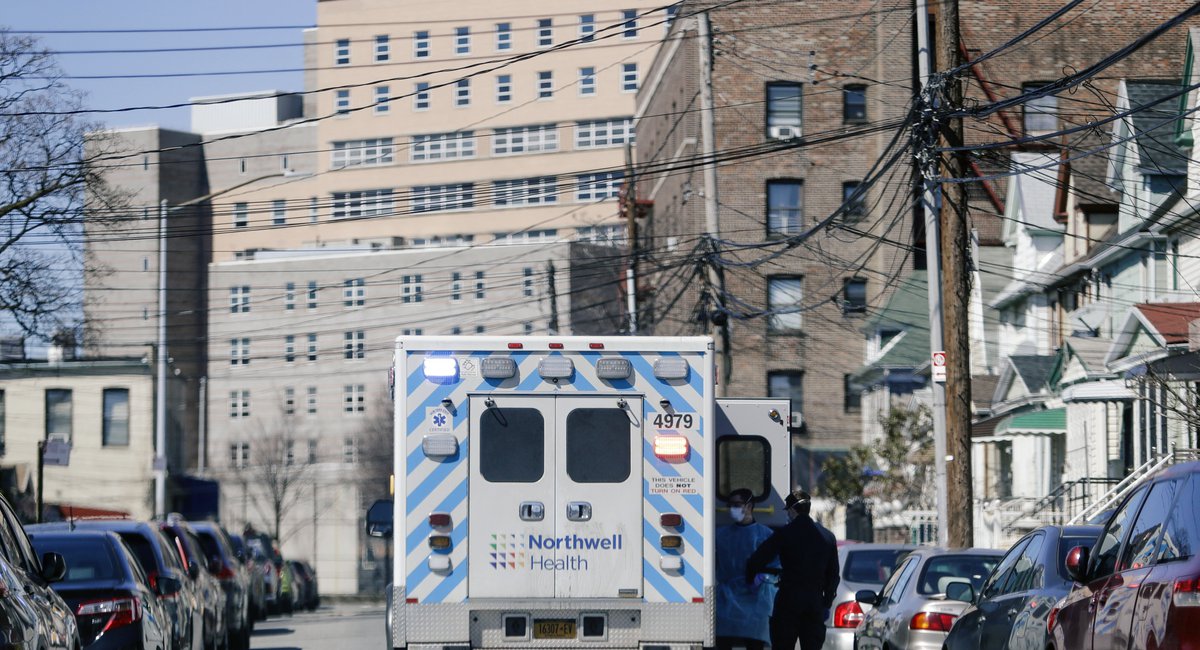For residents of one Crown Heights building, the news about which of their neighbors has died from COVID-19 comes through a private Facebook group — or not at all. Stuck inside their homes, the tenants trade grim findings online: one person heard from a maintenance worker that the virus had killed six people in the building; another shared a text from their long-time super who is now in the hospital.
But when the tenants try to confirm with the landlord, they say their questions are brushed off. In an email to one tenant a representative for United Management claimed that the super had not tested positive, adding that there is “no requirement to distribute any information concerning coronavirus.” (A spokesperson for United Way told Gothamist they’d look into the reports of six fatalities, and did not respond to follow-up inquiries.)
Another tenant, who asked for anonymity because she feared retaliation from the landlord, accused them of “actively trying to keep it hush-hush” by downplaying the possible cluster inside the building. “Shouldn’t we know how many people died where we live?” she wondered.
The question has bedeviled New York City tenants and property owners alike. Currently, landlords are not required to provide notice that someone in a building has contracted the virus or died from it. Likewise, tenants are not legally obligated to inform their building’s owner or manager if they get sick — despite some attempts from landlords to mandate such disclosures.
In the absence of official guidance, real estate attorneys say there are steps building owners should take to keep their tenants informed. “We tell them they should let people know if there is a case, but don’t identify the person that is infected,” said David Berkey, an attorney with Gallet Dreyer & Berkey, LLP, which represents property owners and condominium boards throughout the city.
The firm has provided some owners with a template to obtain written consent from an infected resident that would allow them to be identified. Even if a tenant declines, landlords should provide notice to their building that there has been a suspected or confirmed case, according to Berkey.
But efforts at transparency are complicated by the fact that some tenants may feel they’re better off hiding their positive status from their landlords. Berkey said he’d heard from several owners and property managers who hoped to evict tenants infected with the virus.
“It’s not appropriate to be taking drastic steps like that,” he told Gothamist. “First of all you can’t begin eviction proceedings. And just because someone is ill, that isn’t a lease violation.”
In other cases, such disclosures become a public health necessity. If a building employee gets the virus, the landlord should immediately notify every occupant who may have had contact with them, the attorney said.
A spokesperson for the Mayor’s Office did not say whether such disclosures are legally required, but pointed to city recommendations for building owners and managers, which urges them to consider closing common areas and to regularly disinfect surfaces such as door handles and elevator buttons.
For some tenants who believe they’ve been exposed to the virus inside their homes, that guidance is not enough.
“We’ve heard nothing about cleaning…we still don’t know what the landlord is doing to remedy this situation,” the Crown Heights resident told Gothamist. “I hear people mingling in the hallways, and I don’t think they realize that the building is potentially really dangerous.”






